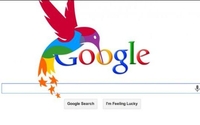
Search engine marketers need to put aside attempts to raise their brand's Web site to the top of first-page query rankings through old-fashioned optimization techniques and focus on
content -- as well as Hummingbird, Google's latest search algorithm for conversational search.
Search is on the cusp of a major transformation, and marketers need to build better
content, rather than try to optimize it for search engines, per Vikram Bhaskaran, director of marketing at Freshdesk. Building algorithms that allow search engines to think like consumers becomes the
holy grail, he said. Marketers must create content for a specific type of customer. That will optimize brand Web sites to land for specific consumers in the No. 1 position.
Search experts warn that a combination of content, personalized search and the Hummingbird algorithm will make ranking relevant solely to the person searching for answers to questions at
any specific moment in time. Google will index and rank sites across the Web based on content, rather than keywords. It's a well known fact that has been floating around the search industry for
months.
SEO by the Sea founder Bill Slawski dug up some Google
patents that may provide insight on the future of Hummingbird. One patent suggests substitution of query terms or finding terms or phrases to use to expand queries. Specific words such as
"Apple" can change meaning or mean more than one thing. "Or two words that might potentially be substitutes for each other are 'felines' and 'cats,'" he explains.
Some people
believe that brands will get less traffic to their Web sites, but consumers landing on the pages will have a specific purpose and more likely to make a purchase or download information. Chris
Marentis, CEO of digital marketing provider Surefire Social, said consumers are interacting differently with search engines, "asking longer questions through voice search."
"Build pages in the way that answers questions using subject, predicate, and object," Marentis said, adding that gaming the system will become a thing of the past. "Use objects, images,
and videos, and with the correct semantic structure the content will get grabbed into features like Google Carousel."
Hummingbird sorts through billions of Web pages and content to
return what it believes the best answers to conversational search queries, rather than those based on keywords. It works with Knowledge Graph, which connects people, places or things. The algorithm
makes keywords less important, focusing more on strings of words linked together to form a conversation such as "how do I provide better customer service."
Google began using
structured data earlier this year to support a markup language, which allows marketers to tell the engine what each piece of the content on the page means. The schema developed by Google, Microsoft
and Yahoo engineers provide insight into the future of search.